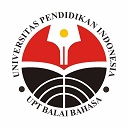Linking Methods, Motivation, and Outcomes: Investigating the Japanese Learning at Vocational Training Institution
Abstract
This study investigates the methods, motivation, and outcomes of Japanese learning in a five-month training program at a Vocational Training Institution (LPK) and its impact on learners’ language skills, particularly for those preparing to work in Japan. The study employed a longitudinal mixed-methods approach and involved 18 participants from an LPK in Sumedang, West Java, Indonesia. Data were collected through questionnaires, observations, and proficiency tests based on the standards of the Japan Foundation (JF). The findings revealed significant variations in language proficiency, with many students reaching the A2 level by the end of the training program. Despite this improvement, challenges remained in sentence construction, the use of complex vocabulary, and students’ self-confidence in speaking. The study highlights the interconnectedness of student motivation, teaching methods, and learning outcomes as key factors in determining language learning success. Learning methods serve as a means of delivering material and play a key role in motivating student learning, which in turn impacts the quality of learning outcomes. Practice-based learning, role-play, and multimedia use emerged as key methods that foster both engagement and proficiency. Student motivation was mainly driven by economic aspirations, including job opportunities in Japan and the desire to support family finances. These extrinsic motivations proved to be strong predictors of learning commitment. Furthermore, learners actively used Japanese outside the classroom, particularly during designated "Japanese days", reinforcing practical language use. The results suggest that the training programs should prioritize speaking practice, integrate culturally relevant materials, and adopt interactive strategies to increase learners’ confidence and competence. The insights from this study are expected to guide educational institutions in designing more effective and sustainable Japanese language programs customized to workforce readiness, thereby supporting both the linguistic and socio-economic goals of learners.
Keywords
Japanese learning; Teaching methods; Motivation; Learning outcomes; Training program.
Full Text:
PDFDOI: https://doi.org/10.17509/japanedu.v10i1.82243
Refbacks
- There are currently no refbacks.
Copyright (c) 2025 JAPANEDU: Jurnal Pendidikan dan Pengajaran Bahasa Jepang

This work is licensed under a Creative Commons Attribution-ShareAlike 4.0 International License.
 Published by:
Published by: Department of Japanese Language Education, Faculty of Language and Literature Education
Universitas Pendidikan Indonesia
 Online ISSN: Online ISSN:2528-5548 |

JAPANEDU: Jurnal Pendidikan dan Pengajaran Bahasa Jepang (e-ISSN:2528-5548) lisenced under a Creative Commons Attribution-ShareAlike 4.0 Internasional (CC BY-SA 4.0)


